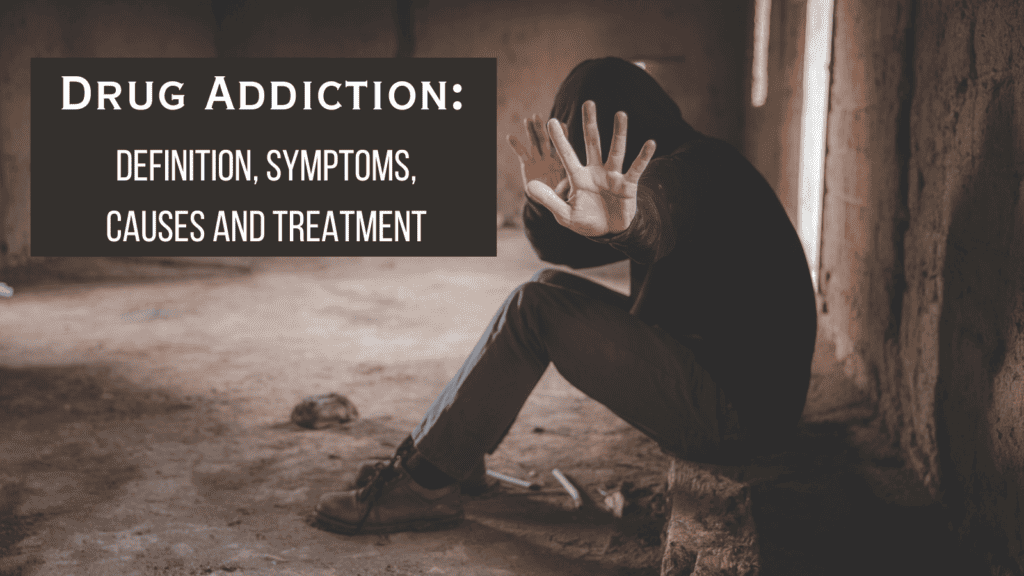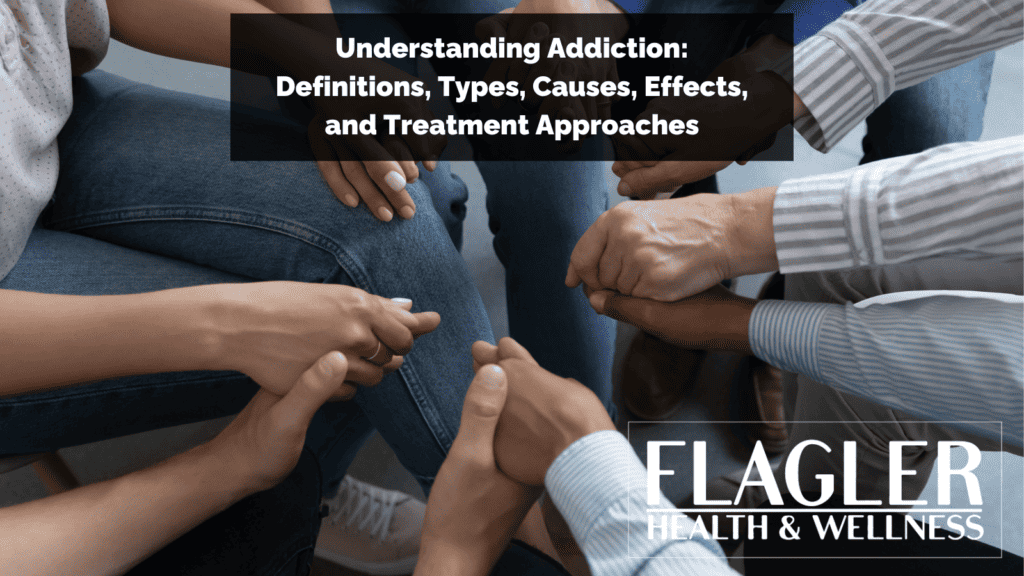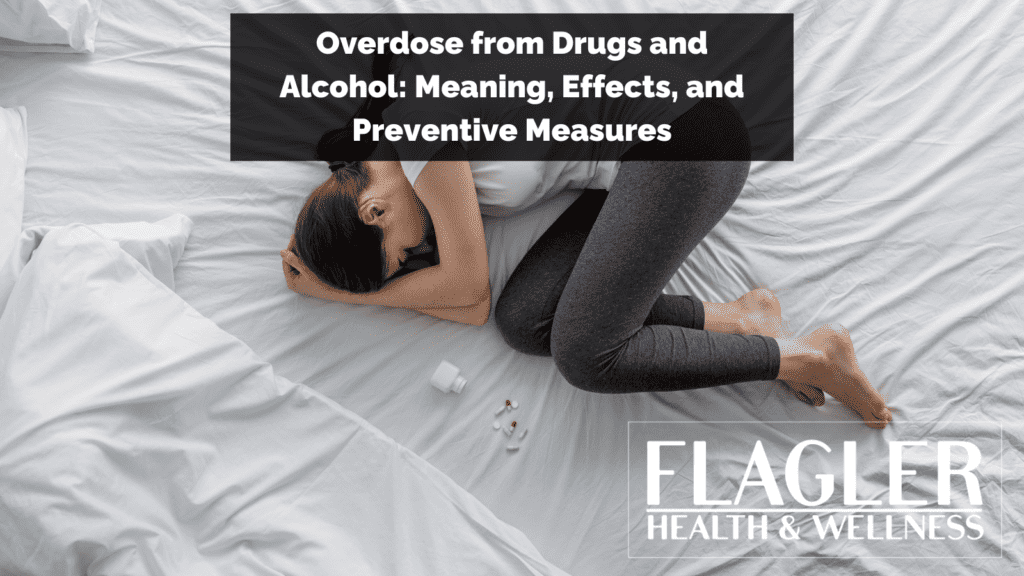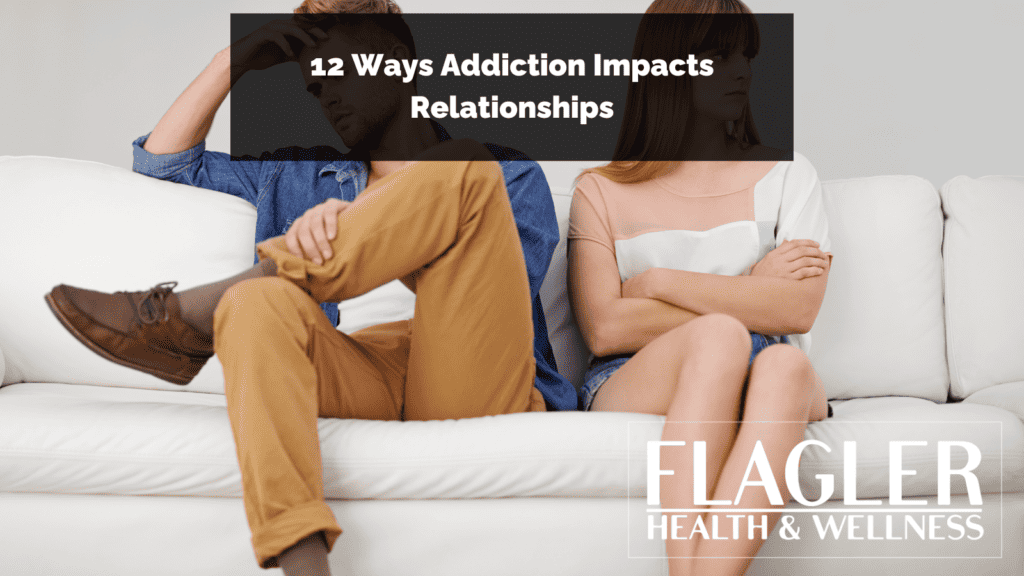Drug addiction, also known as substance use disorder, is a complex condition characterized by the compulsive use of drugs despite harmful consequences. It is a brain disorder because it involves functional changes to brain circuits involved in reward, stress, and self-control.
The Symptoms of Drug Addiction include an intense focus on obtaining and using the drug of choice, neglect of social and family obligations, erratic behavior, and physical symptoms like tolerance and withdrawal. Individuals may also exhibit secretive behavior, experience financial difficulties, and engage in risky activities while under the influence. Over time, the need to use the drug becomes a driving force in the person’s life.
The Causes of Drug Addiction can be genetic, environmental, and psychological factors. A person’s genetic predisposition can increase their vulnerability, especially when combined with influences like peer pressure, family drug use, or stress from their surroundings. Mental health issues, including anxiety or depression, often exacerbate this risk, as individuals may turn to substances as a misguided form of self-medication, paving the path to dependency in a search for relief.
The Consequences of Drug Addiction extend far beyond health deterioration, impacting every facet of an individual’s life. Chronic substance abuse can lead to severe medical issues, including heart disease, liver failure, or infectious diseases. It also wreaks havoc on personal relationships, potentially resulting in job loss, financial ruin, and legal troubles. Addiction often leads to emotional and psychological distress, trapping individuals in a cycle of dependency that can isolate them from support systems and hinder recovery efforts.
What is Drug Addiction?
Drug addiction is a chronic disorder characterized by the compulsive use of drugs despite changes in their brain and the negative effects on their health, which can be long-lasting. People struggling with addiction often find themselves in a relentless cycle, compelled to pursue and consume substances even in the face of detrimental consequences to their well-being and the distress it may cause to those they hold dear.
What are the Signs and Symptoms of Drug Addiction?
Drug abuse and addiction often manifest through a variety of signs and symptoms, which can be behavioral, physical, or psychological. Those misusing substances may exhibit sudden mood swings, withdrawal from social situations, neglect of responsibilities, and unexplained financial problems. Physical indicators might include changes in appetite, sleep patterns, and deterioration in personal grooming. Psychological signs can encompass anxiety, irritability, or bouts of depression.
Symptoms of Drug Abuse:
- Sudden change in behavior
- Unexplained need for money or financial crisis
- Neglecting responsibilities or duties
- Changes in friends, favorite hangouts, and hobbies
- Unusual smell on breath, body, or clothing
- Tremors, slurred speech, or impaired coordination

Who is at Risk for Drug Addiction?
Drug addiction can affect individuals from all walks of life, but certain factors can increase the risk of developing a substance use disorder. According to the National Institute on Drug Abuse, genetics account for about 40-60% of a person’s vulnerability to addiction. Environmental factors, such as exposure to drugs at a young age, stress, and peer pressure, also play a significant role.
How Common Is Drug Addiction?
The National Institute on Drug Abuse (NIDA) reported that in 2020, approximately 40.3 million Americans aged 12 or older had a substance use disorder in the past year. This significant number highlights the widespread impact of addiction across various age groups in the United States and underscores the critical need for comprehensive strategies to address this public health challenge. On top of that the ongoing opioid crisis remains a significant public health issue, with the Centers for Disease Control and Prevention (CDC) reporting over 68,630 opioid-related overdose deaths in 2020.
Why Do People Get Addicted?
People become addicted to drugs as a result of seeking relief from physical pain or emotional distress, the desire to enhance pleasure, or succumb to peer pressure. Drug addiction does not discriminate and can impact anyone, regardless of age, sex, ethnicity, or socioeconomic status. However, there are certain factors that can make some individuals more susceptible to addiction.
Genetics: Research has established that genetics can significantly influence an individual’s likelihood of addiction. Individuals with a family history of substance use disorders are at a higher risk, suggesting a hereditary component to addiction vulnerability.
Socioeconomic Factors: Those facing financial stress, unemployment, or living in poverty may turn to substance use as a coping mechanism for their stress and frustration, which can lead to addiction.
Mental Health: People with mental health disorders such as depression, anxiety, or post-traumatic stress disorder (PTSD) are more likely to develop substance use disorders, often as a form of self-medication.
Chronic Pain and Injury: Individuals with chronic pain or those recovering from injuries may be prescribed opioid painkillers, which have a high potential for addiction. Dependence can develop quickly, even with legitimate medical use.
Environment: Exposure to environments where drug use is normalized, such as certain social circles or communities, can increase the risk of addiction. Peer pressure and the desire to fit in can lead to experimental use that may escalate to addiction.
Trauma: Experiences of trauma, especially during childhood, such as physical or emotional abuse, can increase the likelihood of drug addiction later in life.
Early Use: Engaging in substance use at an early age can disrupt brain development and increase the likelihood of addiction. The adolescent brain is particularly vulnerable as it is still developing areas responsible for decision-making, judgment, and self-control.
What Are The Most Common Drug Addictions?
Drug users can become dependent on a variety of substances, including:
- Opioids: like heroin, oxycodone, and fentanyl, which are often prescribed for pain relief but have a high potential for addiction.
- Stimulants: such as cocaine and methamphetamine, which increase alertness and energy.
- Depressants: including benzodiazepines and alcohol, which are used for their calming effects.
- Cannabis: which can be used recreationally or medicinally but may lead to dependency in some users.
- Hallucinogens: such as LSD and psilocybin, which alter perception and can create psychological dependence.
- Prescription medications: like Adderall or Ritalin, which are sometimes used non-medically for their stimulant effects.
- Inhalants: such as aerosols, gasses, and solvents, which can be addictive and are often among the first drugs that young adolescents use.
What are the Consequences of Drug Addiction?
Drug addiction can have devastating consequences, permeating nearly every aspect of an individual’s life. Physically, it can ravage the body, leading to long-term health issues like heart disease, liver failure, or infectious diseases. Psychologically, it can result in mental health disorders, impaired cognitive function, and an inability to experience pleasure without the substance. Socially, addiction often destroys relationships, causing isolation, and can lead to legal and financial troubles.
Additionally, the compulsion to use drugs can overshadow personal responsibilities and ambitions, derailing careers and educational pursuits. The effect of these outcomes not only distresses the individual but also significantly impacts families, workplaces, and communities.

Who does Drug Addiction Affect?
Not only does drug addiction affect the abuser but it also affects the families and friends of the addicted individual. Drug Addicttion profoundly affects families, often creating an atmosphere of stress, conflict, and emotional pain. It can strain or sever relationships, as trust erodes due to the behaviors associated with addiction, such as lying or stealing.
Husbands
Husbands of drug addicts or alcoholics often face a unique set of emotional and financial challenges. They may struggle with the unpredictability of their spouse’s behavior, the financial strain of treatment and potential legal issues, as well as the emotional toll of trust issues and relationship instability.
Wives
Wives of drug addicts or alcoholics can be deeply affected by their partner’s substance abuse. They might bear the brunt of emotional distress, including feelings of betrayal or anger, while also juggling increased responsibilities at home and potentially dealing with social stigma or isolation.
Daughters
Daughters of addicts are affected in numerous ways, which can include emotional neglect, exposure to inappropriate situations, or the burden of taking on adult responsibilities prematurely. The long-term psychological impact can alter their development and affect future relationships.
Sons
Sons of individuals with addiction may encounter emotional and behavioral challenges. They could adopt similar destructive patterns, suffer academically, or experience feelings of shame or guilt. Like daughters, they may also have to assume adult responsibilities earlier than their peers, influencing their outlook on life and family roles.
Friends
Friends of drug addicts or alcoholics are often caught between support and boundaries. They may witness erratic behavior or be on the receiving end of requests for money or support. The addiction can strain friendships, leading to a dilemma over how to help without enabling and when to step back to protect their own well-being.
Coworkers
Coworkers experience the impact of addiction in a professional context. They may face increased workloads to compensate for their colleague’s absenteeism or decreased productivity. There’s also the challenge of navigating the balance between showing empathy for a struggling colleague and maintaining a functional and safe work environment.
How to Get Treatment For Drug Addiction?
Getting help for drug addiction is a critical step towards recovery, and it begins with acknowledging the problem. The journey often starts with a visit to a healthcare provider who can offer an initial assessment and refer you to addiction specialists. Treatment options range from inpatient rehab programs, where individuals receive round-the-clock care, to outpatient services that allow for therapy while maintaining daily routines.
Support groups like Narcotics Anonymous provide community-based support, while individual counseling can address personal issues contributing to addiction. For those with severe dependencies, medical detoxification may be necessary to safely manage withdrawal symptoms. Additionally, family therapy can help repair relationships and build a supportive home environment.
How To Tell If You Are Addicted to Drugs?
If drugs are taking over your thoughts and actions, or if you need more drugs to feel the same effects as before, these could be signs of addiction. Admitting you might need help is a brave first step towards getting better. If any of this sounds like you, it’s a good idea to talk to someone who can help guide you towards recovery. To check if you might be addicted to drugs, ask yourself some tough questions.
- Do you keep using drugs even though you know they’re bad for you?
- Are you still taking drugs even if they cause problems in your life?
- Do you use more drugs than you mean to?
- Are drugs causing trouble with your money, friends, job, or family?
- Have people close to you said they’re worried about how much you use drugs?
- Do you feel like you need drugs to get through the day or to deal with things?
If you said yes to any of these, it might mean you have an addiction. It’s really important to ask for help early on. If you’re worried about your drug use or someone else’s, we’re here to talk and help you figure out what to do next.
Which is the most addictive drug?
The question of the “most addictive drug” can be complex due to varying criteria for addiction and individual differences in susceptibility. However, certain substances are often cited as being highly addictive based on their impact on the brain and the high rates of dependency they produce. Some of these include:
- Heroin: Often considered one of the most addictive drugs, heroin is an opioid that creates a powerful high by releasing large amounts of dopamine in the brain.
- Cocaine: A stimulant that increases levels of dopamine, norepinephrine, and serotonin in the brain, leading to intense euphoria and high potential for addiction.
- Methamphetamine (Meth): Known for its ability to release high levels of dopamine rapidly, meth is highly addictive and can quickly lead to physical and psychological dependency.
- Nicotine: Found in tobacco products, nicotine is widely used and is highly addictive due to its stimulating and calming effects.
- Alcohol: Although legal in many parts of the world, alcohol has a high potential for addiction and can lead to severe physical dependence.
- Prescription Opioids: Medications like oxycodone, hydrocodone, and fentanyl are highly addictive due to their potent pain-relieving and euphoric effects.
Each of these substances affects the brain’s reward system, making them highly addictive. The degree of addiction can vary based on factors like the method of administration, the dose, the frequency of use, and individual susceptibility, including genetic, psychological, and environmental factors.

We’re Here to Help- Flagler Health and Wellness
Drug Addiction is marked by a complex interplay of symptoms, underlying causes, and far-reaching consequences. But amidst these challenges, there is hope. Flagler Health and Wellness stands as a testament to the possibility of a brighter future through their drug and alcohol rehab center in West Palm Beach, FL. Our dedicated team is committed to supporting individuals on their journey to reclaim control over their lives. If you or someone you care about is struggling with the grip of addiction, take the courageous step towards transformation. Reach out to Flagler Health and Wellness today, and embark on the path to healing and lasting recovery. Your story isn’t over; let us help you turn the page to a new chapter.
Share This Post







